News and Articles › Paintings and drawings
Kitsch is a product of groups which do not posses their own cultural traditions and therefore adopt some stereotypes from other cultural traditions.
— J. Jarnuszkiewiczowa, historian
Top list
View the entire list
The newly founded Memorosa group are presenting their first exhibition From Another Land at Krutthuset in Stavern on April 13th. The members of the group include Odd Nerdrum, Turid Spildo, Öde S. Nerdrum, Sebastian Salvo, William Heimdal and Nic Thurman.
Wanderers, outcasts, villains, executions and imagery focusing on the hero’s journey are recurring themes in this exhibition.
I sat down with Salvo, Heimdal and Thurman for an interview to talk with them about the show and the works that they are soon putting on display in the little town on the southern coast of Norway.
— Why the Memorosa group?
“Odd came out with that name for the exhibition. He said that people love gangs,” Salvo replies.
“With clear values,” Thurman adds.
Heimdal reflects on it for a moment, and then he says: “It’s very brave to exhibit together with other painters, because then you have to compare.”
The importance of creating communities of people sharing the love of classical painting and the Greco-Roman, Aristotelean values, is what the Memorosa group is concerned with. At large, they are inspired by periods such as Hellenism in Ancient Greece, the Italian Renaissance, and painters such as Titian, Rembrandt and Odd Nerdrum.
“A part of our mission is to make painting great again,” says William Heimdal, referring to Odd Nerdrum and Carl Korsnes’ book with the same title. As Korsnes, Heimdal recognizes that painting as a discipline is dead. He insists, however, on fighting to lift up painting to a Renaissance level, and the world has probably not seen such a heroic attempt at such an undertaking from a 16 year old man in a very long time.
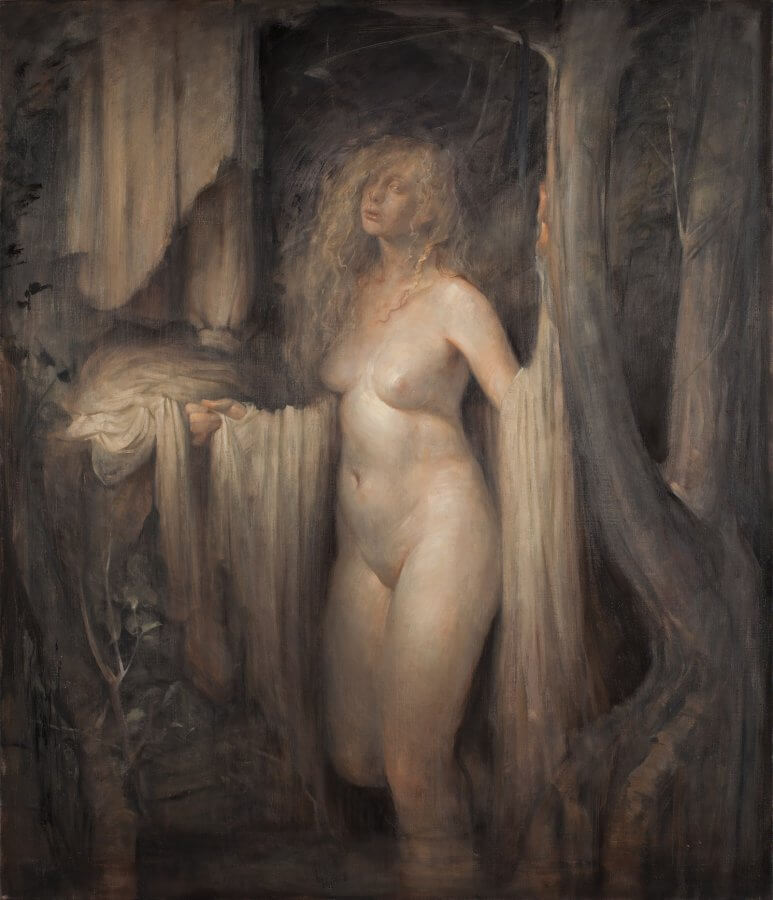
Sebastian Salvo: “Myndin”, Oil on canvas, 120 x 190 cm, 2019
Contrary to what most art historians would say about the Renaissance painters, they embraced universal themes, with no sense of originality or self-expression. The “modern” man in 16th century Italy was no “modernist.” He looked back to the golden age that was Greece and strived to recreate it in all its glory.
Upon the reflection of the Greco-Roman values, Nic Thurman finds it convenient to recite Ayn Rand who said that “any personality in your work is a flaw.” Thurman takes it a step further and says that “all personality is a flaw.” He points to the Greek sculptures and asks “who made them? You have to have some background knowledge. You can’t tell it simply by looking at them.”
Salvo compliments his two colleagues: “To take the best from the times you like in history, I think that’s the key. It’s the key to do something good. And that’s where I think many painters today stop. Because it’s bad to copy, it’s bad to imitate, and you have all these negative connotations related to the word imitation. But when you are able to start copying and making imitations of all these human postures and facial expressions, the way characters move in a scene or how they represent a story, it is something that you store in your brain, in a way. And when you do, they come out naturally.”
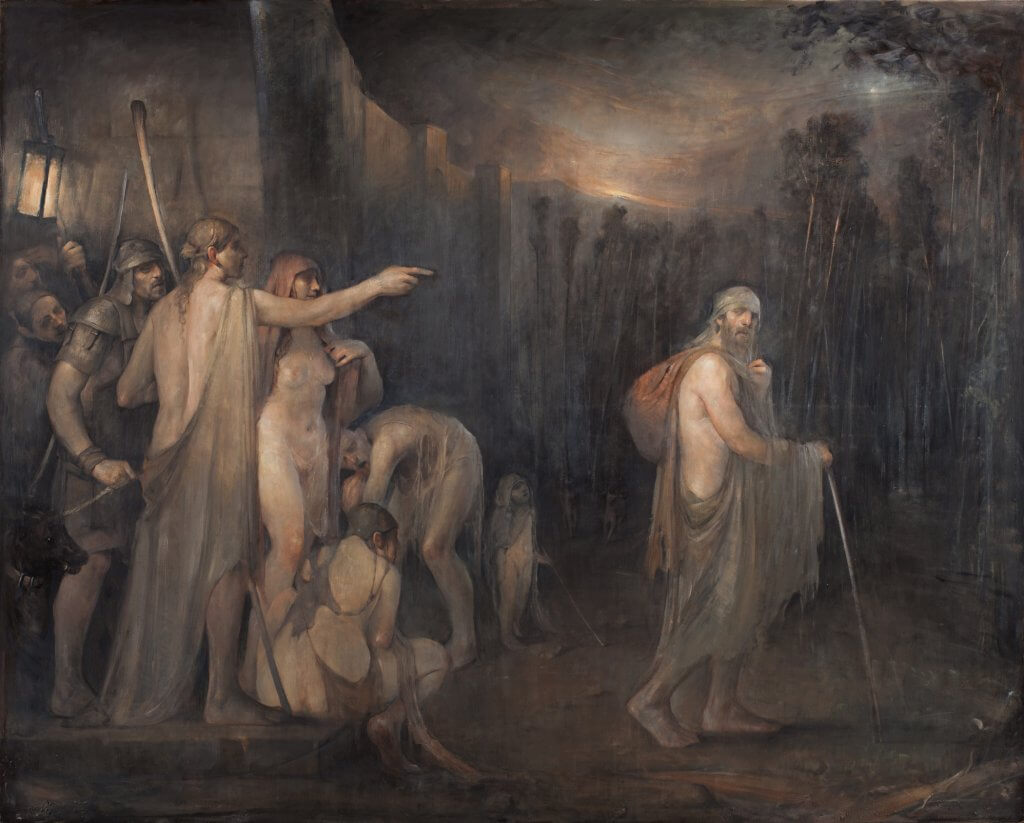
Sebastian Salvo: “Outcast”, Oil on canvas, 238 x 190cm, 2019
It’s a story about a man that decides to go away from the comfortable environment, which means to live within the walls of the city, the society and the group. I thought that it could be part of a series of four paintings. It was based a little bit on the hero’s journey and what Joseph Campbell has talked about. How the hero leaves this ordinary, common life to begin a journey into an unknown territory.
— Sebastian Salvo on “The Outcast”
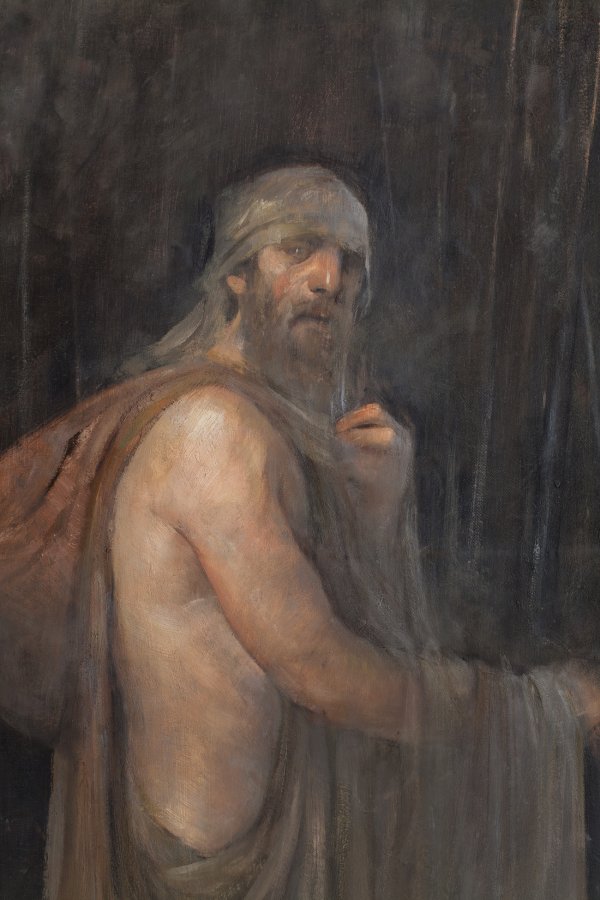
Detail from “Outcast” by Sebastian Salvo
Self-portraits without self-expression
The Memorosa group works with a subdued palette, consisting black, white, red and yellow. They claim to paint from life and imagination, never from photographs.
Salvo declares that “it’s not a frozen image, like a photo, it’s alive.”
Another aspect of their paintings, the subject matter, is always dedicated to some kind of story or universal truth about human life.
The trio are exhibiting numerous self-portraits, without the painter’s personal expression. Rather they portray themselves as wanderers, pirates, martyrs and striving poets, painted in a dreamy, dramatic manner.
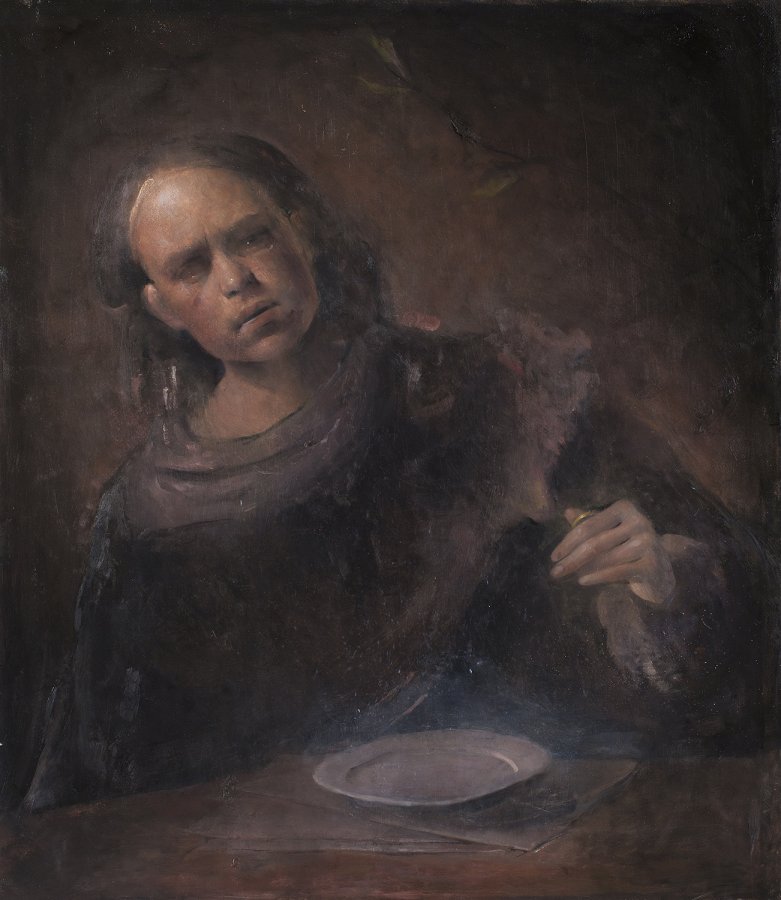
William Heimdal: “Self-portrait as a Poet”, Oil on canvas, 2019
It’s a story about a poet giving away his only coin in order to get food on his plate. I have tried to make a tragic self-portrait. Because tragedy is the best of the poetic forms and to make a tragic self-portrait is hard because it’s a portrait. It’s easier to make a tragic composition, in a way.
— William Heimdal on his self-portrait as a poet
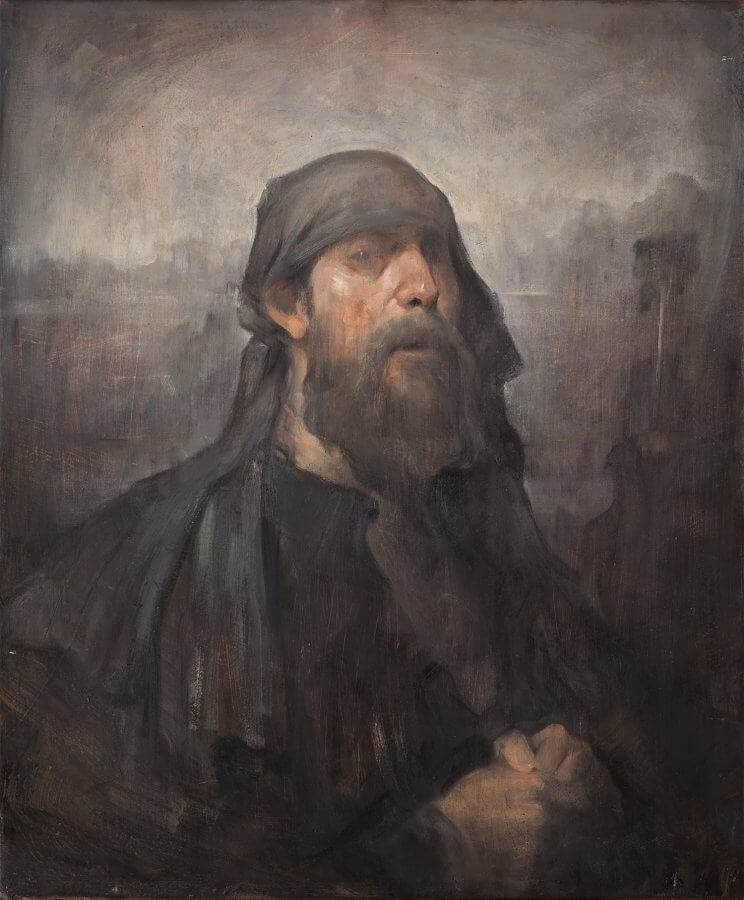
Sebastian Salvo: “Wanderer”, Oil on canvas, 50 x 61 cm, 2019
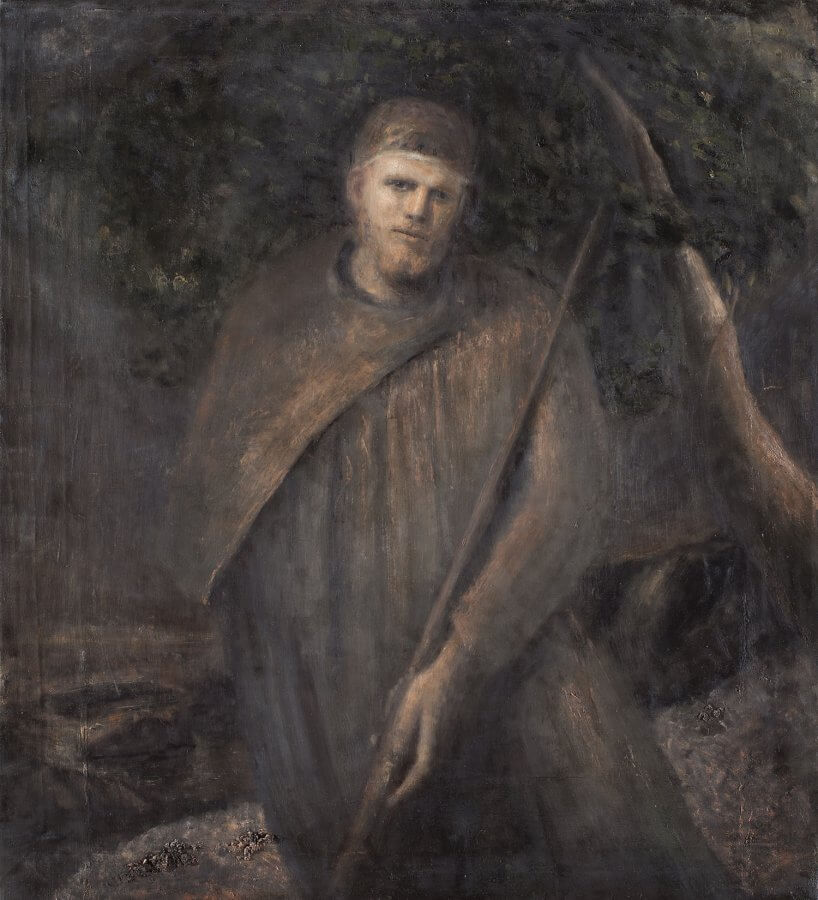
Nic Thurman: “Wanderer”, Oil on canvas, 100 x 111 cm, 2019
Salvo and Thurman are both debuting with complex, near life-size compositions, displaying dramatic stories about scapegoats and outcasts.
They point out that these theatrical paintings are the result of five to six months of full-time work.
“I think that’s not enough,” Salvo says. They laugh about it for a moment.
Salvo explains: “When you know that there are painters, Odd included, that have worked for years in order to achieve a good result in a composition, six months is nothing.”
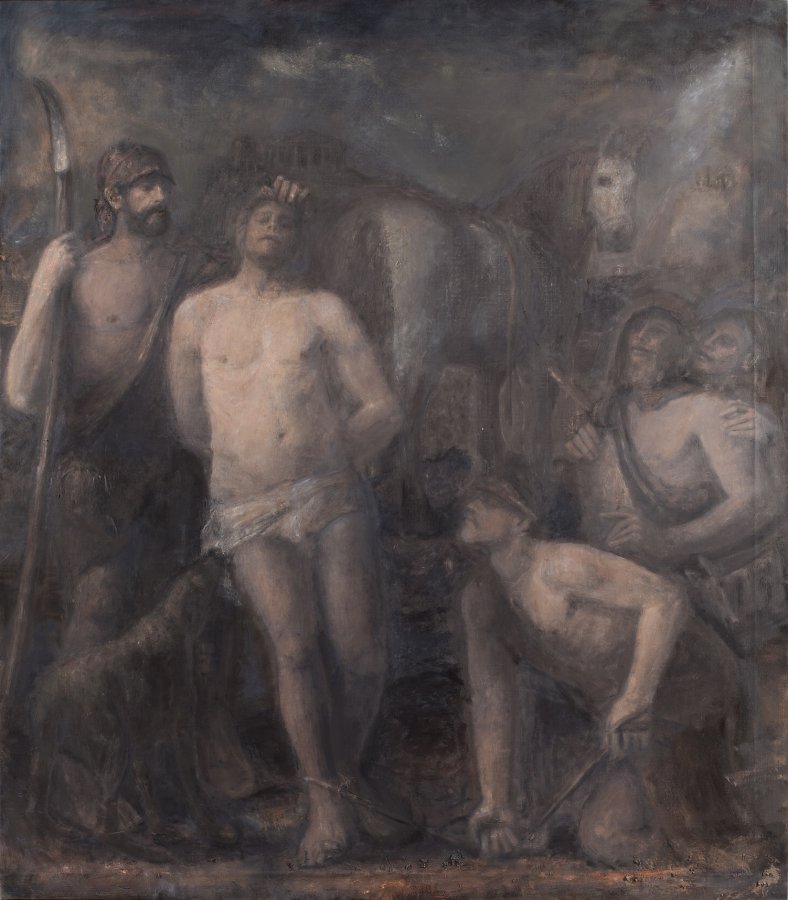
Nic Thurman: “Scapegoat”, Oil on canvas, 180 x 203 cm, 2019
He is being taken to be murdered by what they think is a rightful action — they’re doing something good by murdering this guy.
— Nic Thurman
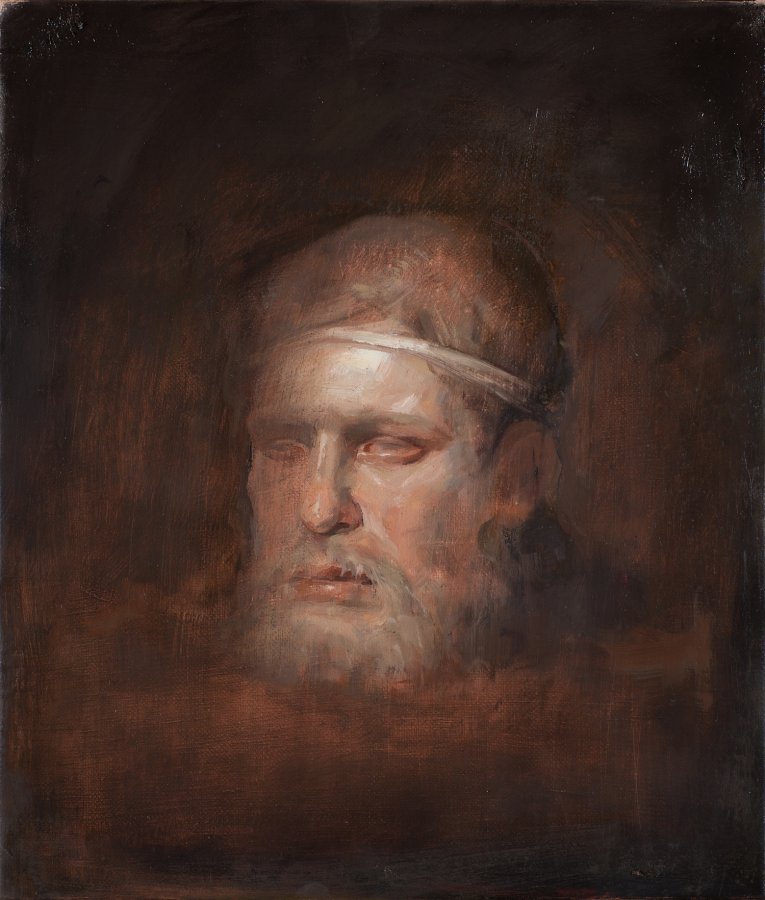
Sebastian Salvo: “Head”, Oil on canvas, 30 x 36 cm, 2019
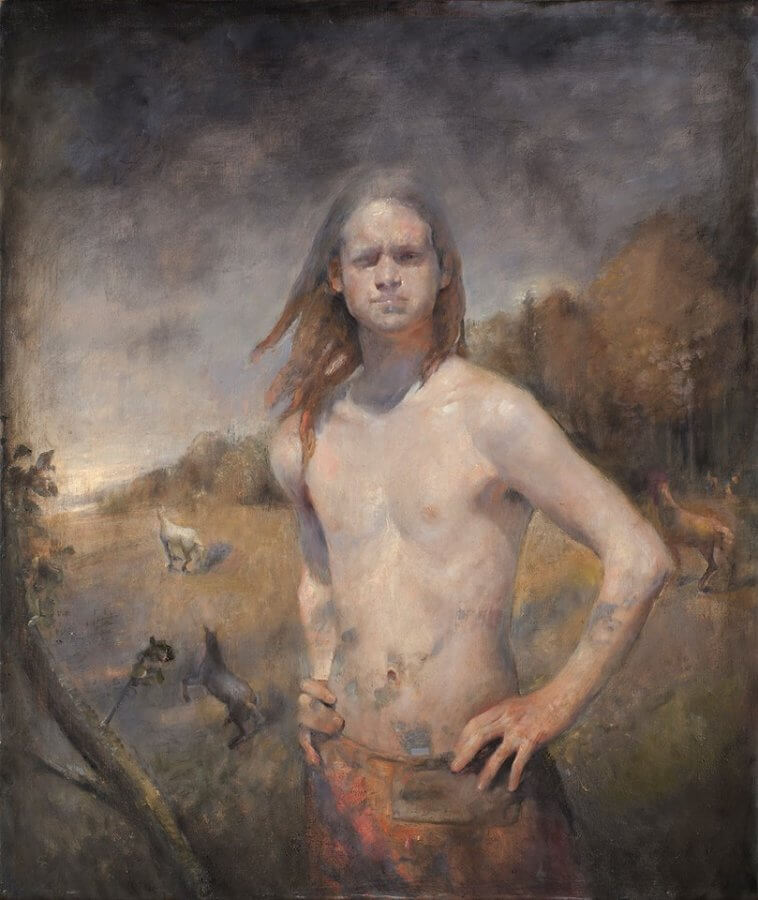
Odd Nerdrum: “Prince William”, Oil on canvas, 2018
Nerdrum himself is exhibiting a summer portrait of William Heimdal with a naked upper body and a proud posture.
“In a place like this, which has been home to the greatest painter of all time, they still don’t get it,” Thurman says, and refers to the lack of appreciation that the Norwegian public has for Odd Nerdrum’s paintings.
“Well, I think it takes time,” Salvo replies, “not just because it’s from another land, but because it’s from another time.”
He calls “From Another Land” the first public attack in the aim of “taking control,” whatever that means… but we should expect future exhibitions, perhaps in other cities and perhaps in other lands, from these talented, young, unoriginal painters.
Published on Monday, April 8th, 2019
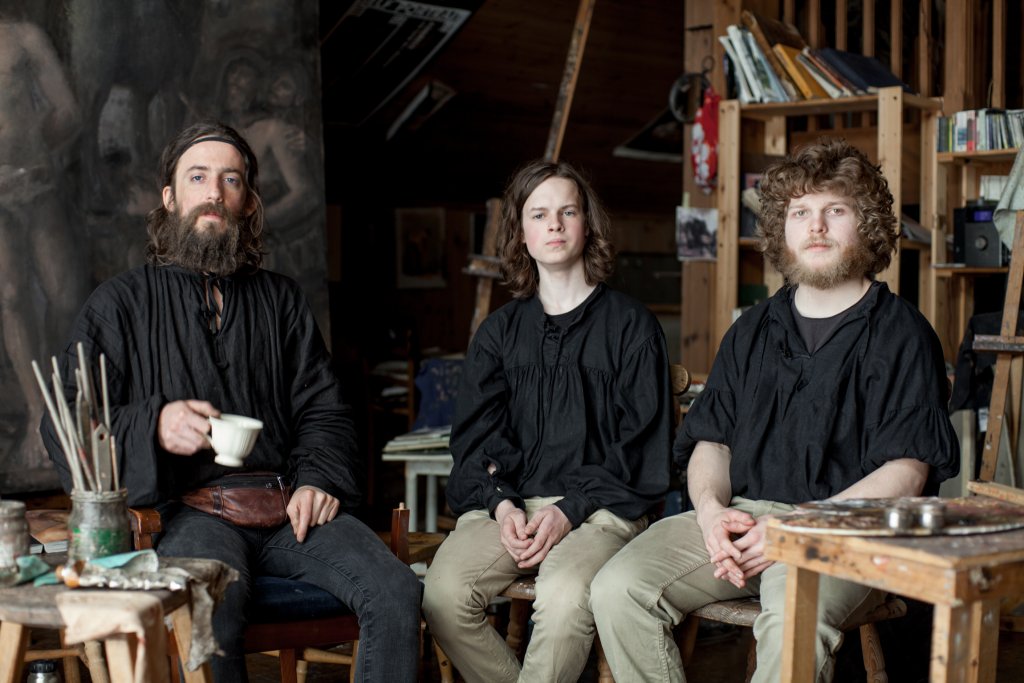

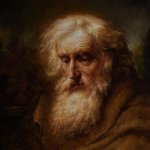
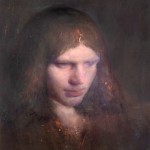
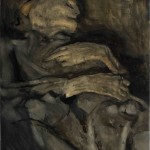
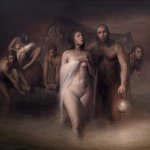
Uiterste bewogenheid,kosmische verbondenheid.Empathie met het werk van Odd Nerdrum dat angst,onrust,vervreemding overstijgt en aandacht,eerbied,stilte afdwingt.Bewondering en een vorm van liefde als voor Velasquez,Titiaan,Rembrandt,Jan Lievens,Zurbaran.
Uitermate meeslepend.Bevreemdende en bedragende,aandacht en tijd afdwingende schoonheid als uit een parallelle wereld.En wat Odd Nerdrum schildert heeft de buitengewone kracht eerbied en stilte af te dwingen,angst en onrust te overstijgen door het grote gevoel deze schoonheid eigen.Emoties van empathie,kosmische eenheid.Verbondenheid ondanks de vervreemding en dreiging van deze tijd.